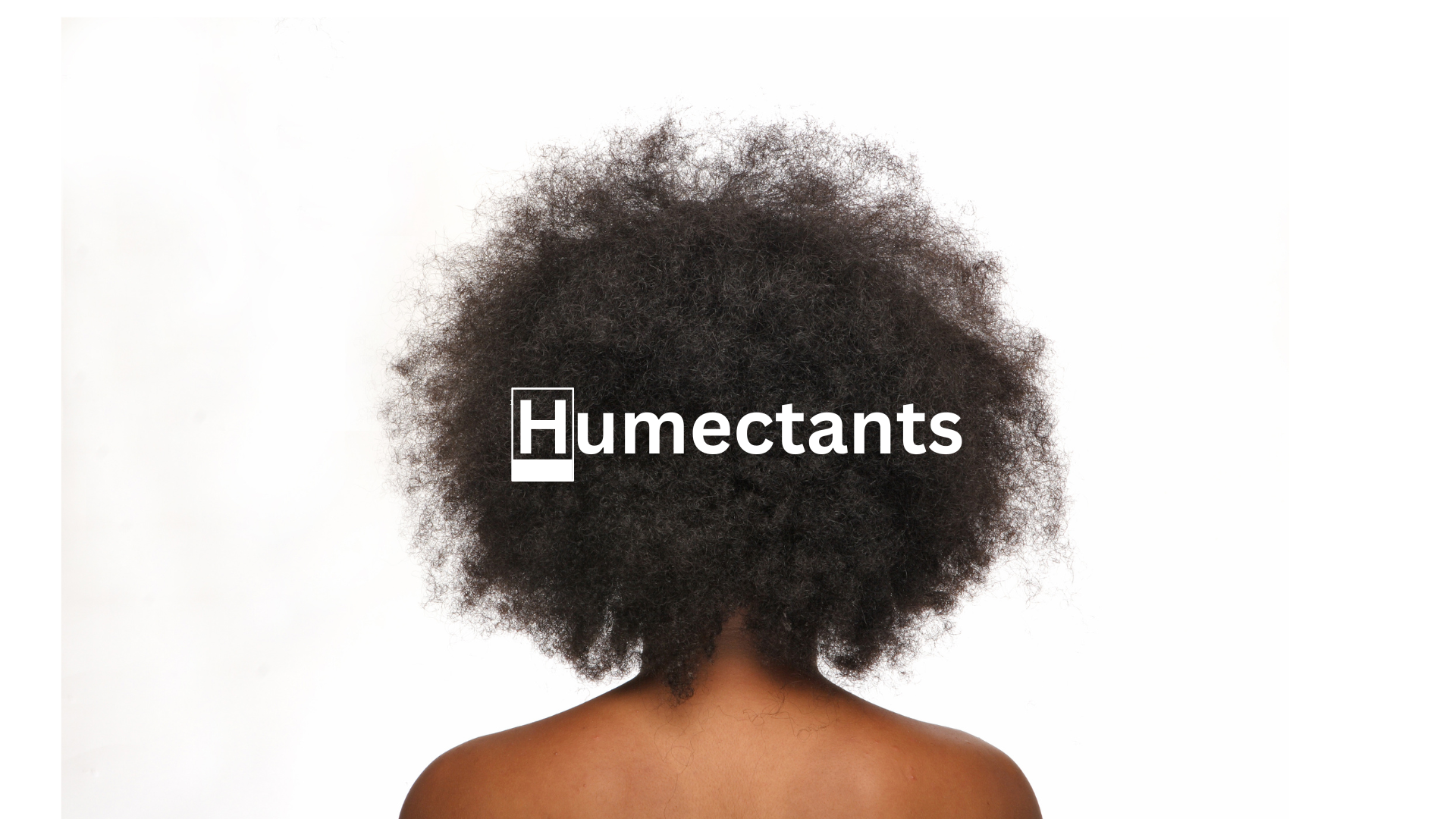Humectants for Kinky, Coily, and Curly Hair: The Ultimate Guide to Hydration
If you have kinky, coily, or curly hair, you know how important it is to retain moisture in order to maintain soft, defined, and healthy curls. Humectants are key ingredients that help attract and retain water, making them essential for achieving hydration and reducing dryness in textured hair types. This guide will walk you through the best humectants for curly hair, how they work, and tips on using them effectively for long-lasting moisture.
What Are Humectants and Why Are They Important for Curly Hair?
Humectants are ingredients that draw moisture from the air and help bind it to hair strands. They are especially valuable for curly and coily hair types, which tend to be drier because natural oils from the scalp struggle to travel down each twist and coil. By adding humectants into your hair care routine, you can help your curls retain hydration, softness, and elasticity.
How Do Humectants Work?
Humectants work by attracting water molecules from the environment into the hair shaft. When applied to hair, humectants pull in moisture, making curls more manageable, bouncy, and less prone to breakage. However, it’s important to use humectants correctly, especially in climates with extreme humidity or dryness, as they can either add too much moisture (leading to frizz) or pull moisture out from the hair.
Top Humectants for Kinky, Coily, and Curly Hair
Here are some of the most effective humectants for natural hair, along with their unique benefits:
1. Glycerin
Glycerin is a powerful humectant that draws in moisture, making it ideal for maintaining hydration in curly hair. It can be heavy, so it’s best used in diluted products or in small amounts. Glycerin is especially effective in moderate humidity levels where it won’t cause excessive frizz.
2. Honey
Honey is a natural humectant with additional antibacterial properties that benefit the scalp. It provides lasting moisture and adds shine, which helps curls appear more defined and less frizzy. Honey can be used in DIY treatments or found in moisturizing conditioners and deep conditioners.
3. Aloe Vera
Aloe vera is a lighter humectant that’s great for people with sensitive scalps. It hydrates without leaving a heavy residue, making it ideal for fine to medium hair textures. Aloe vera also has anti-inflammatory properties, which promote a healthy scalp environment.
4. Sodium PCA and Sodium Lactate
These humectants are often found in more specialized hair products. Both attract moisture and maintain hydration for extended periods, but they’re lighter than glycerin and ideal for finer hair types or those in high-humidity climates.
5. Propylene Glycol
Propylene glycol is a common humectant that’s known for its ability to lock in moisture and reduce frizz. It’s lightweight, making it a good option for thinner hair textures or in climates with variable humidity.
Benefits of Humectants for Textured Hair
Humectants offer multiple benefits that make them valuable for curly, coily, and kinky hair types:
Hydration Boost: Humectants increase the water content of each hair strand, which helps curls retain moisture and appear more defined.
Improved Elasticity: Hydrated hair is more elastic, reducing the risk of breakage and making curls more resilient to styling.
Reduced Frizz: By balancing moisture levels, humectants help control frizz, especially when used in combination with sealing products.
Enhanced Softness and Shine: Humectants smooth the hair cuticle, giving curls a softer texture and a natural shine.
Tips for Using Humectants on Curly Hair
To make the most of humectants in your hair care routine, follow these tips:
1. Consider the Climate: In high humidity, humectants can sometimes draw too much water into the hair, causing frizz. In extremely dry weather, they might pull moisture out of the hair, leading to dryness. Adjust your use of humectants based on the climate.
2. Layer with Sealants: To lock in the moisture humectants provide, follow up with a sealing oil or butter like castor oil or shea butter. This helps keep hydration in the hair while controlling frizz and protecting against environmental factors.
3. Use in Deep Conditioning Treatments: Humectants work well in deep conditioning masks or treatments. Combining humectants with oils and creamy conditioners can create a rich, hydrating blend that deeply penetrates curls for long-lasting moisture.
4. Dilute Heavy Humectants: If using heavy humectants like glycerin, try diluting them with water or adding them to conditioners. This prevents buildup and keeps curls lightweight and bouncy.
DIY Humectant Treatment for Curly Hair
For a simple and effective DIY humectant treatment, try this mix:
- 2 tablespoons of aloe vera gel
- 1 tablespoon of honey
- 1 teaspoon of glycerin (optional, if suitable for your climate)
- A few drops of your favorite essential oil (optional)
Mix ingredients and apply to damp, clean hair, focusing on the mid-lengths and ends. Let it sit for 15-20 minutes, then rinse thoroughly and follow with a leave-in conditioner and sealing oil for maximum moisture retention.
Best Practices for Long-Lasting Hydration
To keep curly hair moisturized over time, combine humectants with other hydration-boosting practices, like regular deep conditioning and minimizing heat styling. For optimal moisture retention, consider incorporating humectants into the LOC (Leave-in, Oil, Cream) or LCO (Leave-in, Cream, Oil) method, which helps to seal in moisture for extended hydration.
Final Thoughts
Humectants are a powerful tool for enhancing moisture and softness in kinky, coily, and curly hair. By choosing the right humectants for your hair type and climate, and combining them with sealing products, you can achieve long-lasting hydration and reduce issues like frizz and breakage. Whether you’re using products with glycerin, honey, or aloe vera, humectants can help you achieve healthier, more manageable curls that retain moisture and shine.
Do you have any question after reading this article or would you like for us to take a deep dive on a specific topic? Let us know.
